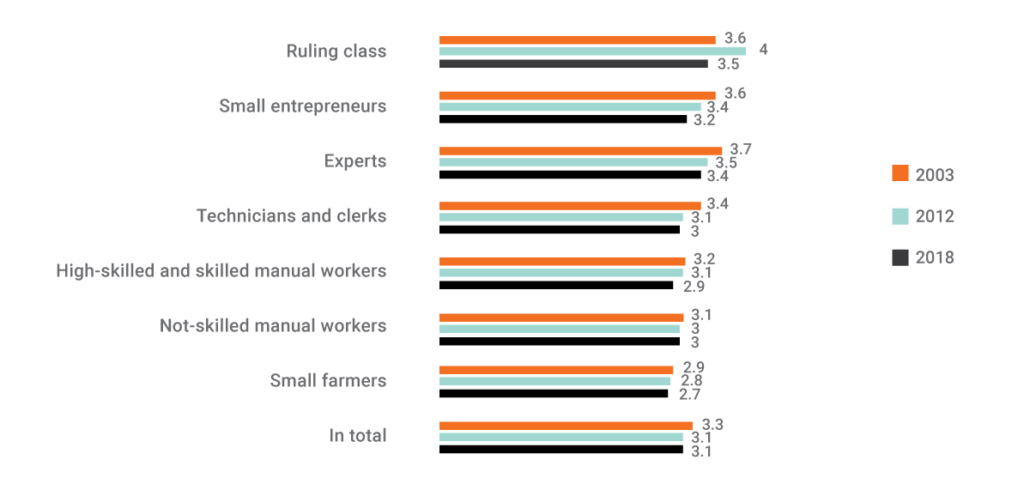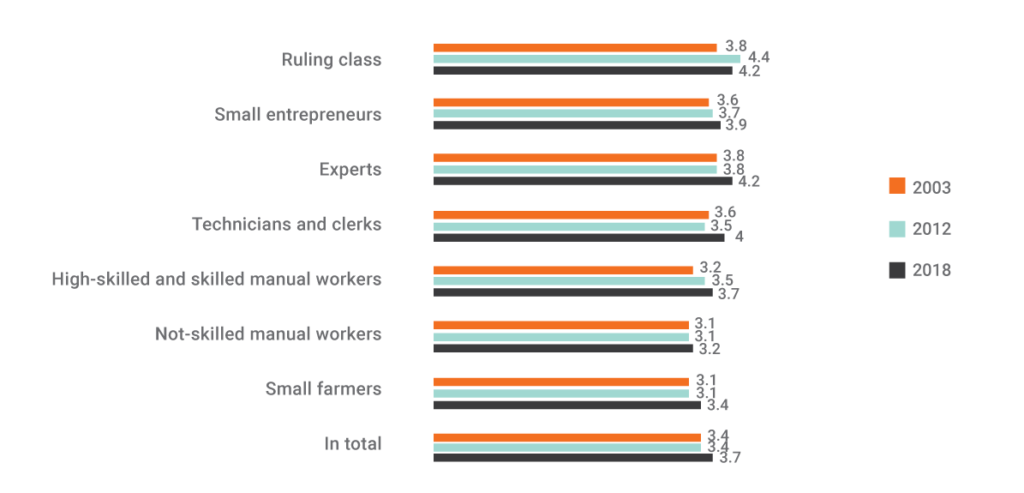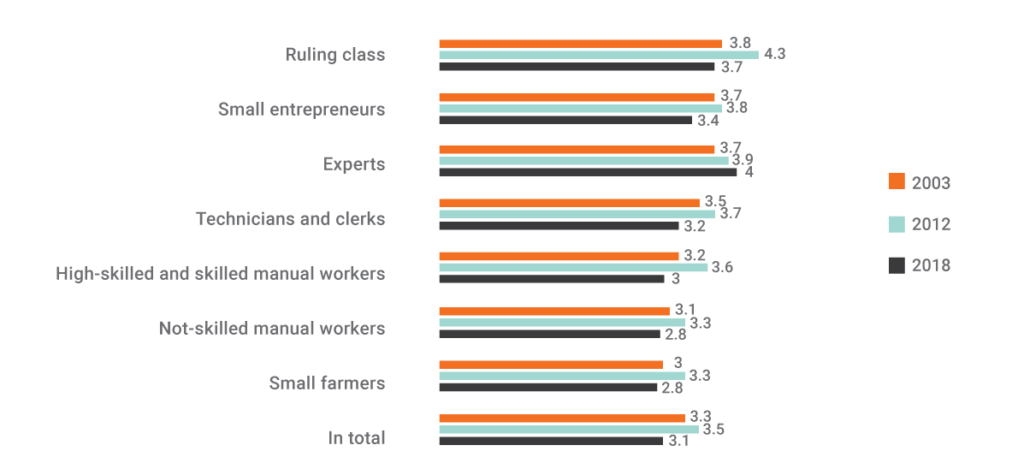Class inequalities are often covered up by identity patterns that are more dominant in the consciousness of people (e.g., gender or ethnicity). Nonetheless, the structural strength of class position and class relations is more enduring, which is why class relations are extremely important for the development of an equal, democratic society. The following aspects are especially important for the period of post-socialist democratic transition in Serbia: changes in the trend of class mobility, changes in the orientation towards democratic values and changes in the action potential of citizens and social classes.
The transformation from a socialist to a capitalist society in Serbia is slow and marked by state institutions and public resources being captured by political and economic elites, which tend to be closed off, exclusive networks that self-reproduce. The overall intergenerational class-layer self-reproduction has increased, given that more than 1/3 of the members of society remain in the same positions as their parents. Although the number of jobs has increased, this has not led to a reduction in inequality but to its growth. These new jobs have not been created with equal opportunity for members of different walks of life. The ratio of the chances of the descendants of the upper classes and those from the lower part of the ladder to find themselves in the middle or ruling class has increased in favor of the former, which leads to further growth of class inequalities and makes the transformation of Serbian society unfair.
The situation regarding class mobility also reflects on the support for the democratic values. Privileged “winners” of the post-socialist transition – members of the ruling class, experts and (less and less) small entrepreneurs, give greater declarative support to democratic values than other “losing” classes. The general trend of declining support for democratic values makes the position of the layer of experts even more striking. For them, the options for rising to the ruling class are somewhat narrowed. They, as the most educated and socially most aware layer, even though their economic position is gradually improving, believe that in the long run they can improve their social position only in circumstances of a strong democracy. A significant part of this class also expressed its political position through civil revolt, street protests and increased activism in the civil sector. Taking all that into account, they still need an alliance with other social groups to achieve any significant political goal.



The potential for an “action alliance” between the layer of experts and other social layers that are more numerous does not depend only on the similarity of their class and political interests, but also on the level of their activism. In that sense, visible are the trends that do not leave much space for creating a communal social action, but a spark for a flame of class alliances is there and has the potential of spreading. That spark is the orientation towards democratic values and civic activism that is practiced mostly by middle class and a small part of the working class. We must keep in mind that coalitions between middle and working class are rare and short-lived, thanks to confronting interests. They ask for a specific moment in time, good preparation and even better organization, especially looking at the broader context of political clientelism in Serbia.